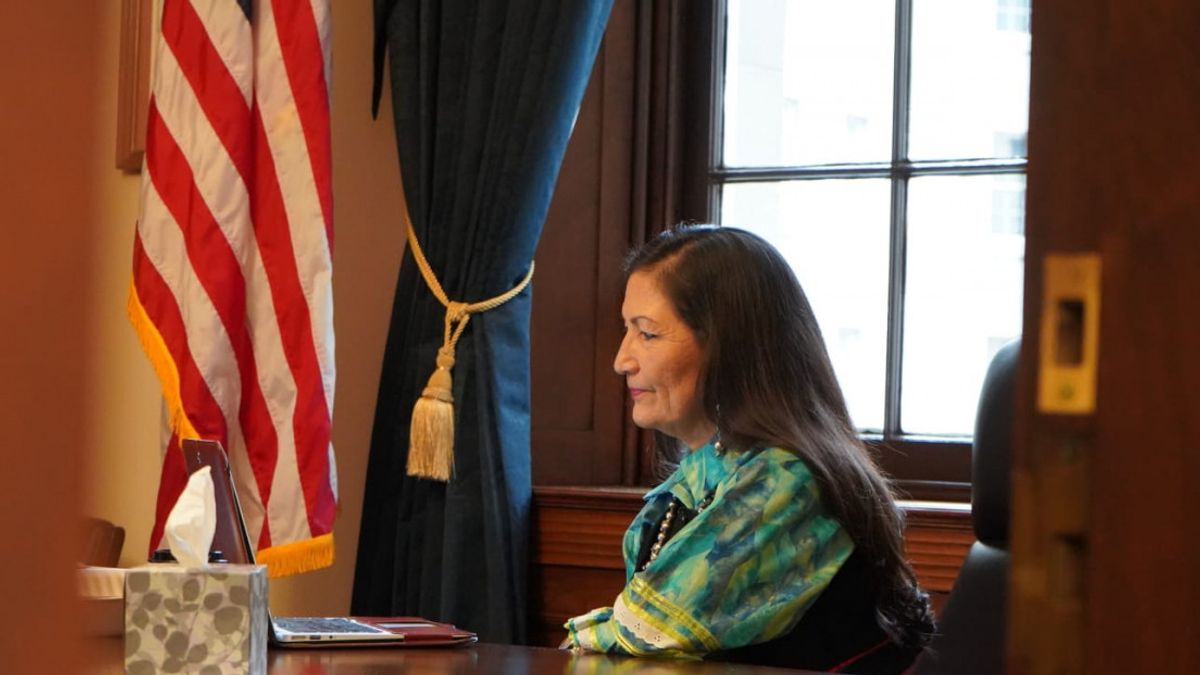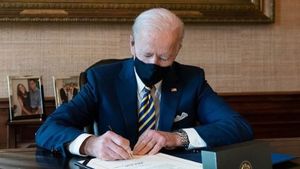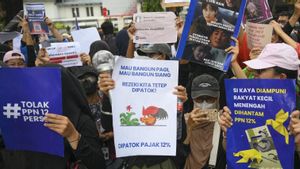JAKARTA - For the first time in history, a native of the United States of America has served as a minister in the government cabinet. She is Deb Haaland who was confirmed on Monday, March 15th.
Through a tight vote, this member of the United States Congress from the New Mexico State Democratic Party was elected with a 51-40 vote, including support from South Carolina Republican Senator Lindsey Graham, Alaska Senator Lisa Murkowski, and Dan Sullivan, and Maine Senator Susan Collins.
Being one of the first two Native American women to become a member of Congress in 2018, she received a scolding from Republican Senators, after participating in pipe protests to support a climate resolution.
Born in Winslow, Arizona on December 2, 1960, Haaland, who is an Indian descendant of the Laguna Pueblo Tribe, is proud to call herself the 35th generation of New Mexico, as reported by Euronews.

Her father was a railroad worker at Winslow. Meanwhile, her father is a respected Marine and her mother served in the Navy. Then as an adult, Haaland struggled as a single mother, once having to apply for food stamps to put food on the table for her children.
Homework
As a domestic minister, Deb Haaland has a series of homework to adjust to the policies and work programs of the Joe Biden Cabinet Government. For example, it will oversee a policy of using 500 million acres of federal and tribal land. It will also bridge the US Government's ties with 574 federally recognized tribes.
"Her appointment sends a signal to young Native Americans. She is the embodiment of the old adage that if you look at it, you can do it," said New Mexico Democratic Senator Ben Ray Lujan, who led the Senate during the vote.
Her voting trial caught the attention of native Americans. Her election is expected to encourage the federal government to consult more frequently with tribes, on issues of environmental protection to the police.
"For me, this environmental problem is related to tribal sovereignty. Under her direction, I think there is potential to tackle environmental racism,” said Majerle Lister, a native graduate student.

Meanwhile, University of New Mexico native student Alysia Coriz said Haaland's choice was a reminder of the challenges that indigenous women face in their own communities.
For New Mexico university student and community administrator Alysia Coriz, a 24-year-old Kewa Pueblo, Haaland's rise is a reminder of the challenges that Indigenous women face in their own communities.
"For our Pueblo women to increase their potential and exceed it, they have to look outside," says Coriz.
Meanwhile, US Senate Majority Leader Chuck Schumer said Haaland's appointment would help improve relations between the Department of the Domestic and tribal states that had been treated unfairly before.
"Given the long and troubled relationship between the federal government and tribal states, Haaland's rise to the top of the Department of the Domestic is a very important moment for America," Schumer said before the vote.

Separately, Harvard Project Director for Economic Development of American Indians Megan Hill said, Haaland now has to handle many difficult demands, facing high expectations because of the historic nature of her appointment.
"While she will have cabinet-level decision-making power, she will face competing interests of protecting the environment and increasing Indigenous priorities for managing demand from big oil and climate change deniers," he said.
SEE ALSO:
In the run-up to the confirmation, Haaland vowed to 'get tough' on all Americans, vowing to advance policies to tackle greenhouse gas emissions, where about 25 percent of emissions come from burning fuels extracted from public land and waters.
Last November she said she wanted to accelerate renewable energy projects, conserve 30% of public land and waters by 2030 and protect more culturally and ecologically sensitive sites.
The English, Chinese, Japanese, Arabic, and French versions are automatically generated by the AI. So there may still be inaccuracies in translating, please always see Indonesian as our main language. (system supported by DigitalSiber.id)

















